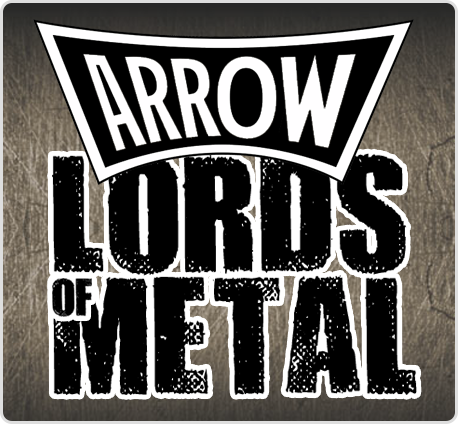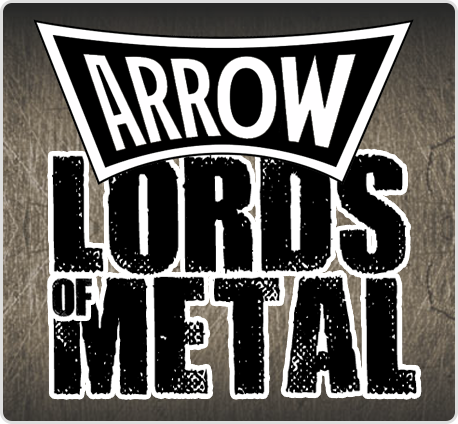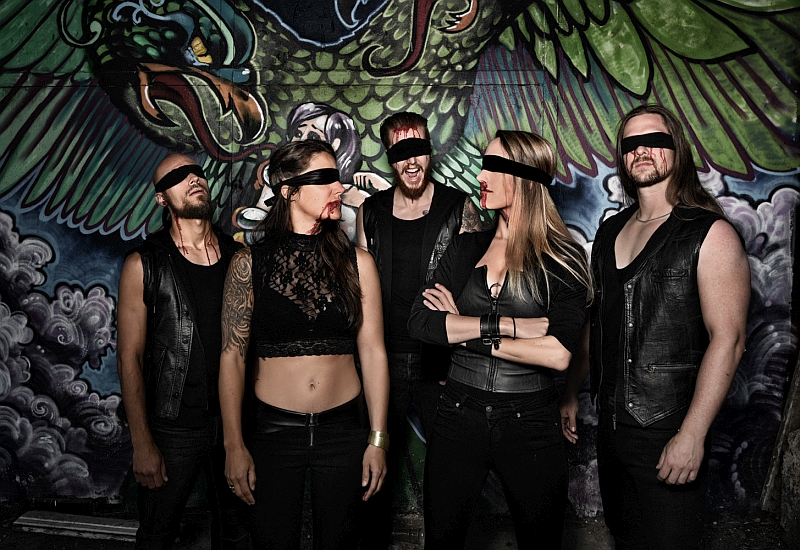
Dictated
Jessica Otten: “We believe, especially in this small but competitive scene, the best thing to do is help each other out.”
De Nederlandse death metalband Dictated is terug met een album dat ze ‘Phobos’ hebben gedoopt. Het hele album behandelt angst als centraal thema. Nomen est omen. En dat thema is natuurlijk iets wat alle leden op persoonlijk vlak hebben ervaren, maar de band zelf heeft er in gezamenlijk verband ook het nodige over te vertellen, wat je hieronder terug kan lezen. Alle aspecten van angst worden belicht en krijgt zijn eigen spotlight moment op de plaat, wat als resultaat heeft dat het een heel sterk, afwisselend album is geworden, met een duidelijke identiteit. Er zijn voor de band wat dingen veranderd, nadat ze Metal Blade Records verlieten besloten ze deze plaat helemaal zelf te maken en te financieren, zo professioneel als binnen hun eigen kunnen maar mogelijk is. En het resultaat is verbluffend. Daarnaast is de vrouwelijke gitaartandem van Sonja en Jessica gebroken, want Jessica is overgestapt naar de basgitaar. Beide dames namen de tijd om uitgebreid om slecht een klein deel van dit verhaal te vertellen, maar ik had een boek kunnen schrijven over wat er allemaal gebeurd is bij Dictated in de afgelopen jaren.
Ramon Ι 23 oktober 2019
Congratulations on the new record ‘Phobos’, when will be the official release date?
The official release date will be October 25th, 2019 (worldwide)!
You debut record was released on Metal Blade Record, this time you took matters into your own hands. What was that experience like, as a group?
Well, it was something haha! We of course did a ‘self-release’ back in 2010 with ‘Summary of Retribution’ already, but we can’t really compare that to the release we are doing now. Back in the days, we just printed 300 cd’s of the album and that was it. No clue about how to promote, or how to sell. With this release, not only are we more experiences, we are doing so much more around the release. From the production to the promotion and from sales to distribution. Of course, we have a little bit of help concerning those topics, but overall we can call this a self-release. And we can tell you, It’s a ton of work, haha! We of course discussed the possibility of ‘self-release’ as a group and if we would be up for such a thing, before kicking this whole thing off.
Everybody needed to be in on this a 100%, because you cannot do this on your own. After a couple discussions and meetings about the “way to do it”, we joined forces and started working on it. Normally, with a record deal you just hand in your master and artwork. The label will take care of the rest. Now we had to think about what kind of products we wanted. How the hell are we supposed to create the lay-out and artwork? How are we going to distribute the album? All these questions needed to be answered before kicking off this album. We wanted to do it on our own, but only when everything was sorted out and taken care of.
Hence the reason why some things took a little longer than expected. You see, the album was already recorded and ready in 2018, but with all the scheduling, planning and creating, it took a little longer. But we made it, and as a group we only got more motivated. We all worked evenly hard, only on different territories. For example, York (vocalist Yorick Keijzer) is our graphic master and ultimate nerd when it comes to design and online presence. Sonja’s strength is in bookings and networking. Koen knows everything about sound and video editing and Jessica has had years of experience within promo. So you see, we combined all these strengths into this album and so far, so good.
Wow, so other bands that want to produce a DIY can now knock on your door to help?
Hahaha if they want help, they can definitely knock on our doors! We believe, especially in this small but competitive scene, the best thing to do is help each other out. This will only help you grow more as a band. If we want to keep the (Dutch) scene alive, we need to start sharing more compassion towards another. It would be absolutely great if younger/newer bands can learn from the mistakes we made. Most bands do not realize that releasing via ‘self-release’ is a lot of work. And not only the fun part where you record and print on CD/Vinyl. You have to think about stuff like Buma, copyright, VAT numbers, invoices, press contacts. How are you going to get your music on the digital platforms? All stuff that needs to be figured out. We would be more than happy to share the experience with other bands who tend to take the same approach.
In the meantime, a change in the line-up was also announced, did that come from your experience as a bass player in Bleeding Gods, Jessica?
Jessica: Yes, actually it did. I was asked to play live bass for Bleeding Gods in July 2018 and ever since I picked up the instrument for those shows, I kind of realized I picked the wrong instrument for fifteen years. Don’t get me wrong, I will always keep playing guitar and write music with it, but on the live front, I definitely prefer the bass. I am extremely excited again to practice and challenge myself to learn more and more. I never realized how much of a difference bass playing is compared to guitar. I mean the left hand, scaling and finger placements are totally okay of course, but when it comes to plucking and speed, you will need to find different ways when you play the bass.
How hard was that to decide, since the unique picture of two female guitarists went overboard with that?
Jessica: For me, it was a bit of a struggle. Sonja and I have always been the guitar tandem of Dictated and it felt a bit like betrayal. Koen and I went to Fortarock last June, and after multiple beers in the local pub afterwards, I told Koen about how much I enjoy playing the bass with Bleeding Gods. Koen was telling me how much he missed playing guitar in a band and we just stared at each other like; ‘Why don’t we switch?’ We let the idea sink in a bit and at some point, we decided to discuss this with the rest.
I first talked to Sonja and I can tell you honestly, I was a bit nervous. Luckily, Sonja totally got it and was fine with the switch. She made it very clear that in the end, everybody needs to feel comfortable within the band and if this switch was going to stimulate that, she had no problem with it. The rest of the band was fine with it as well. The first bass player joker are of course already made in the rehearsal room. We don’t really care about throwing the ‘two female guitar players’ overboard. Like I said, I will still be writing with the guitar, it’s only the live image that will change a bit. Who cares!
Share the jokes!
Sonja: Hahaha, yes please!
Second class musicians, they never get any groupies, Try and learn how to play a real instrument.
How do you get a bass player to turn down? Put sheet music in front of him.
What do you call someone who hangs around musicians……
It’s more of a general welcome feeling we give our favourite musician………
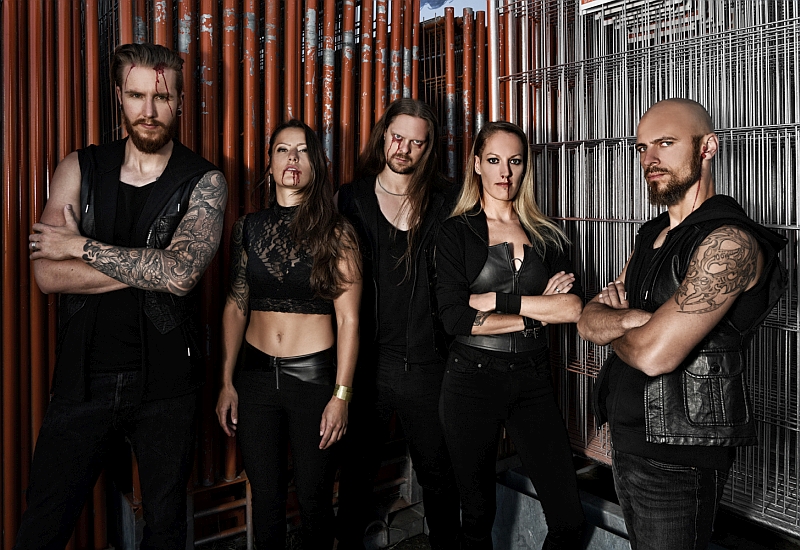
I must congratulate you on the album artwork. Although I have no idea where to put it, it looks great. Could you tell a little bit more about the concept behind it and the relation to the lyrical themes of the record ‘Phobos’, if there is any?
With this record, we kept everything in the same style and theme. Call it a concept album if you will. ‘Phobos’ of course means “fear”, and all eleven tracks represent one specific fear. To combine everything into one (cover) image was a bit of a struggle. In the end we decided to have ‘fear’ displayed as an irrational ‘feeling’, created by the mind. Everybody will experience fear in a different way, so we tried to display this as different elements in the person’s facial area. You’re actually looking at the fear below the surface. You see damaging, cut off pieces, iron gear and transparent parts. Indicate this as you want, as long as fear is on top of the mind. Transparent parts may be indicated as ‘trying to forget/push away’, the broken parts might indicate the ‘damage’ fear has on the physical and mental health of a person and the white eye might indicate ‘ignoring or not recognizing’ fear. Again, interpret the cover as you like. Just like the 11 tracks on the album, they can be applied to everybody.
That worked out really well, I could tell there was a bigger idea behind it, cool! You two founded the band, but the singer in the end is usually the lyricist and the one who therefore decides the main themes in a song. How do you work together with that aspect of keeping the band on the course you once set?
Lyrically, we tried to combine multiple topics. For example, Chira (track 5) is about the fear of being touched. We combined this with the story of Icarus, who flew too close to the sun and had his wings melted off. Apeiro (track 6) is about the fear of infinity, so we combined this with the story of the Russian soldiers in the Second World war who we’re forced to fight forever and we’re guided by this eternity. ‘Glosso’ is about the fear of speaking in public, and this is being represented as an instrumental track…
Sonja has always worked together with the vocalist to maintain the theme and concept of the album when it comes to the lyrics. As we always write the music first, we get a ‘direction’ to work with for the lyrics. With Sonja as the perfect link between the music and lyrics we made sure the lyrics were steered in the right direction. And to be honest, lyrically every piece of the puzzle fell in place automatically when the concept was set in stone.
Without the aid of a label, will it be harder to tour and promote the album you think, or was that something you arranged yourself anyways?
We thought it would be more difficult, but to be honest, a lot more doors opened for us now that we are doing this ourselves. We have been stuck in the ‘Label-Booking agency loop’ for years. Labels would say: “We can’t release it because you have no booking agency, and therefore no shows & sales.” Booking agencies would tell the same, only the other way around. Now that we took matters into our own hands and put in the hard work, we had labels reaching out to US to make a deal (of course we politely declined) and we even joined ‘Dragon Productions’ for our bookings. Promotion wise, yes it will be more difficult because it’s still hard for a smaller band to get a foot between the doors of printed magazines when you’re not with a label. But then again, we are reaching our fans via webzines, social media and, most important, the digital platforms. All and all we think this was the right choice for Dictated. We have now control over everything we do without pleasing a label or other parties involved. This gives you a lot of freedom.
You are always welcome, when you deliver music like this. Which is something we hardly talked about. There is a correlation between the music and the lyrics, as you said before, but was there a general direction or vibe you had in mind before writing?
At first? No. We started writing new tracks after the release of ‘The Deceived’ back in 2014 already, and we gathered a bunch of riffs and loose compositions. To be honest, we we’re struggling to come up with new ideas and music. But there was no rush at that time. When we came back from our last tour of that album’s promo cycle, things changed quickly. In 2016, we went to Nepal and India for 5 or 6 shows and it was the experience of a lifetime. The metal community there is absolutely fantastic. One of the most loyal scenes we ever saw. You see, it’s only been a few years since ‘being metal’ is legal over there. So not much has happened yet, and the entire scene is ‘new’. In some cities, we were even the first European metal band to set foot in the venues.
Unfortunately, this tour experience also caused us a lot of trouble. This might sound lightly, but at some point during the run, we have experienced fear like we never felt before. For example, when traveling, we have been driving through parts where women were not allowed, we were chased by motor gangs, ended up in car races through the mountains and had to bribe a lot of local police enforces. And also during our shows we experienced new and frightening things that would have never happened in European venues. Police would come in mid-show, with loaded weapons to stop you from playing. Power was turned off multiple times because some of the metal fans brought knifes into the pit…. When we got back, we were loaded with new experiences, and it definitely put down the basis of the new album. We threw away everything we had so far and started with a clean sheet. We dove into different influences and found Russian awesome instruments, old hidden records and it made us use additional instruments like keys, Sonja’s backing vocals and samples. After that, the concept was quickly made and everything fell into place rather quickly after we decided on the ‘Phobos’ theme.
And the balance between fast and slow, as fear requires all colors on the spectrum really, was that an issue you considered, or did it come organically?
You are actually the first one to really notice this! Yes, we did tried to balance our album between more straight forward blastbeat death metal and the slower tearing and nerve-racking songs. The musical direction shifted a bit when writing the new material. It isn’t something we thought of beforehand though, but it was something that occurred during our writing process. We started to see a pattern every time we grabbed our guitars to write some new songs. Sonja kept developing her tight riffing and staccato breaks, and Jessica kept on developing the floating lines and ‘feel’ riffs. Which in the end resulted in a bigger difference between the music/compositions we brought to our own studio.
Jessica would bring in riffs that were way too happy or far-fetched, or Sonja would bring in riffs that were way too long and staccato. It took us a while, but we found a way to work together with these newly gained inspiration. In the end, everything came organically and we knew how to combine both influences in the same song. It did give us so many different songs that all ‘felt’ different. We decided to embrace this fact and with the concept idea in mind, it all fell into place after a couple of long sessions of arranging the song structures. By the way, you will never know which guitar parts are Jessica’s or which parts are Sonja’s. After all these years we learned each other’s way of writing and/or we know how to arrange tracks with them. Hell, even we don’t even know any more which parts were written by who. They all melted together in these 11, very divers tracks.
I wish you all the best of luck with the release of ‘Phobos’. I will give you the honour of closing the interview down
Thank you guys so much for reading! It is because of YOU that Dictated is still alive and kicking. Next year will be full of shows and touring so come and say hi, have a drink and dance with us. Thank you Ramon for the opportunity to explain ‘Phobos’!
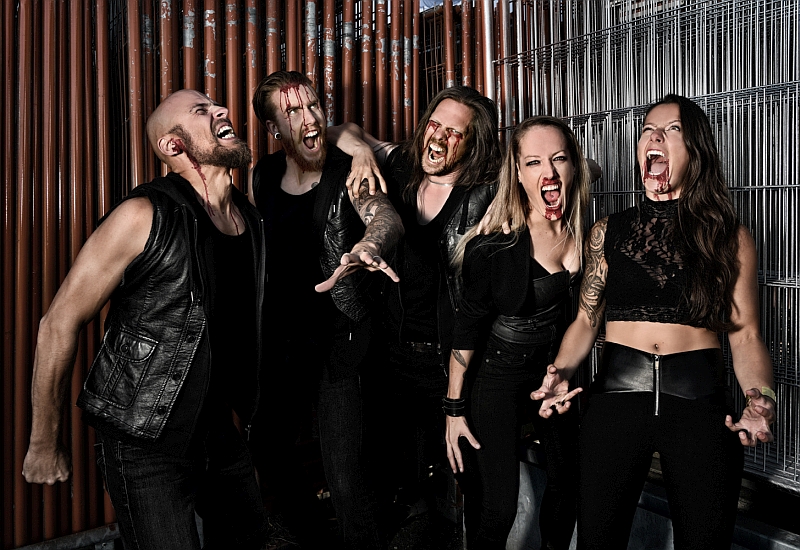
Check de onderstaande socials voor meer informatie over deze band.
